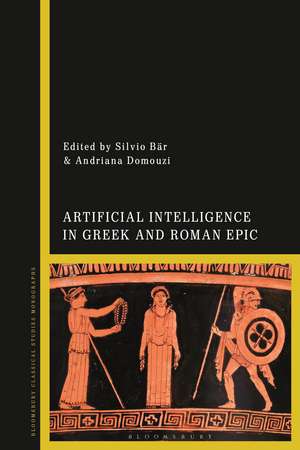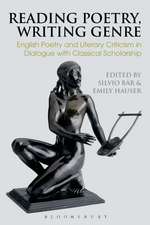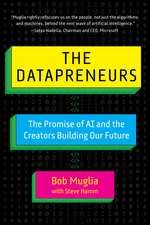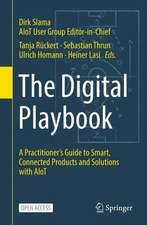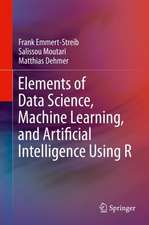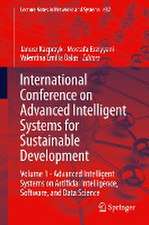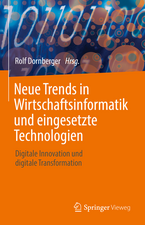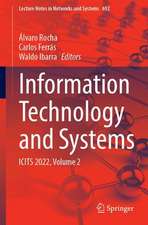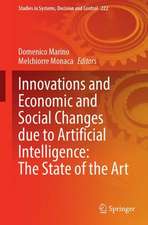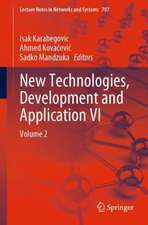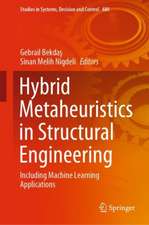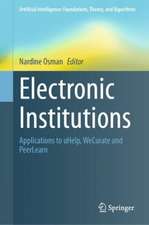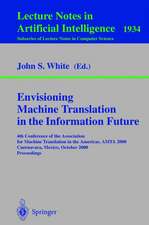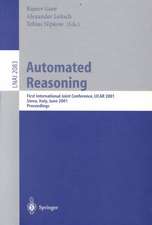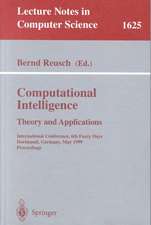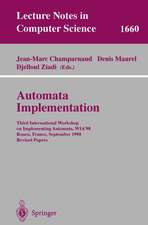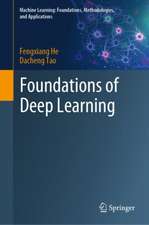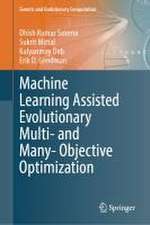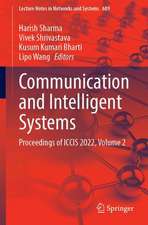Artificial Intelligence in Greek and Roman Epic
Editat de Professor Silvio Bär, Dr Andriana Domouzien Limba Engleză Hardback – 12 iun 2024
Preț: 535.21 lei
Preț vechi: 829.84 lei
-36% Nou
Puncte Express: 803
Preț estimativ în valută:
102.44€ • 111.32$ • 86.11£
102.44€ • 111.32$ • 86.11£
Carte tipărită la comandă
Livrare economică 22 aprilie-06 mai
Preluare comenzi: 021 569.72.76
Specificații
ISBN-13: 9781350260696
ISBN-10: 135026069X
Pagini: 320
Ilustrații: 6 bw illus
Dimensiuni: 156 x 234 mm
Greutate: 0.62 kg
Editura: Bloomsbury Publishing
Colecția Bloomsbury Academic
Locul publicării:London, United Kingdom
ISBN-10: 135026069X
Pagini: 320
Ilustrații: 6 bw illus
Dimensiuni: 156 x 234 mm
Greutate: 0.62 kg
Editura: Bloomsbury Publishing
Colecția Bloomsbury Academic
Locul publicării:London, United Kingdom
Caracteristici
First comprehensive scholarly exploration of concepts and representations of artificial intelligence in ancient Greek and Roman epic
Notă biografică
Andriana Domouzi is Postdoctoral Researcher in Classics and Theatre Studies at the National and Kapodistrian University of Athens, Greece.Silvio Bär is Professor of Classics at the University of Oslo, Norway.
Cuprins
List of FiguresList of ContributorsIntroduction. Greek and Roman Authors Imagining Artificial Intelligence: The Case of Epic Poetry, Andriana Domouzi (National and Kapodistrian University of Athens, Greece) and Silvio Bär (University of Oslo, Norway) I: Archaic Greek Epic1. Hesiod's Pandora: Animal, Vegetable, Mineral, Lilah Grace Canevaro (University of Edinburgh, UK)2. The Homeric Trojan Horse: An Intelligent Device - Giulia Maria Chesi (Humboldt-Universität zu Berlin, Germany)3. Cyber-dogs, 'Gut Thinkings', and the Limits of Recognition in Homer's Odyssey, Brett M. Rogers (University of Puget Sound, USA)4. Homertron: The Poet-Construct of Il. 2.489-490, Jurgen R. Gatt (Università ta' Malta, Malta) 5. Hephaestus' Wheeled Tripods, Braitenberg Vehicles and Entangled Being: The Problem of Homer's Technology, Ahuvia Kahane (Trinity College Dublin, Ireland)II: Hellenistic and Roman Epic6. Talos: Overcoming the AI Monster?, Genevieve Liveley (University of Bristol, UK)7. The Tyrants and Their Robots: The Perverted Use of Artificial Intelligence in Apollonius of Rhodes, Alessandro Giardini (Scuola Normale Superiore di Pisa, Italy)8. Between Nature and Technology: Moschus' Europa and Ancient Automata, Kat Mawford (University of Manchester, UK)9. Pygmalion and Pandora in Ovid's Metamorphoses, Alicia Matz (Boston University, USA)10. Rocking the Boat: Sentient Technology and Metapoetics in Valerius Flaccus' Argonautica, Bev Back (University of Leeds, UK) III: Conceptualisation and Reception11. Artifice of Intelligence? Theories of Mind in Ancient Epic, Benjamin Eldon Stevens (Howard University, USA)12. Heroic Machines: Epic Heroes as Cyborgs, Treasa Bell (Yale University, USA)13. At the Gates of Mt Olympus: Where AI and Literary Culture Meet, Michiel Meeusen (King's College London, UK)14. Hesiod's Age of Heroes and Technological Evolution in Film, Rocki Wentzel (Augustana University, USA)15. Homeric Robots and Computers in Love: Artificial Life Forms in Jan Kresadlo's Ancient Greek Epic Astronautilia (1995), Stefan Weise (Bergische Universität Wuppertal, Germany)16. A Perfect Woman to Order: The Pygmalion Myth in Chris Beckett's The Holy Machine, Tony Keen (University of Notre Dame London's Global Gateway, UK)NotesBibliographyIndex
Recenzii
The volume introduces for the very first time an epic type of artificiality by offering a brilliant discussion on epic warriors, weapons, rumour and travel.
